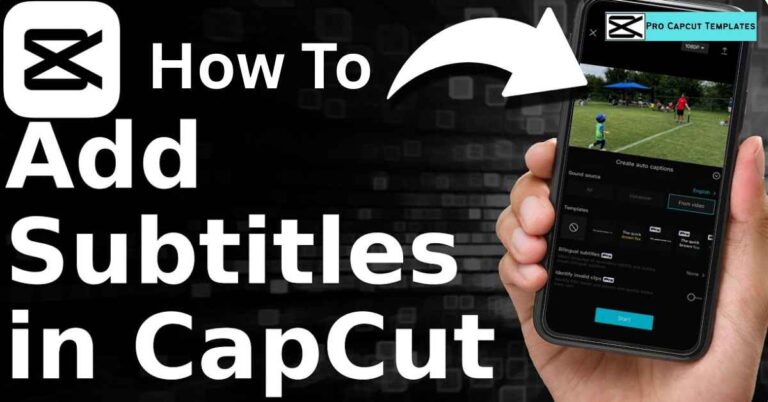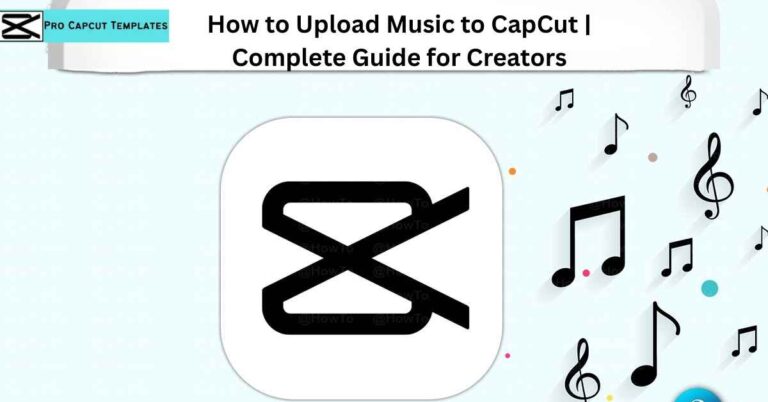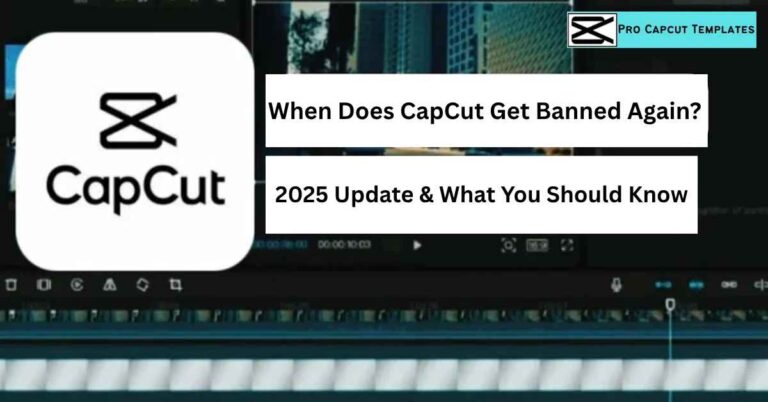Creating engaging videos has never been easier thanks to CapCut, the versatile desktop video editor that allows you to edit, enhance, and share content effortlessly. Whether you want to polish travel vlogs, social media clips, or product videos, mastering how to make a edit on CapCut will elevate your content to the next level.
In this guide, we’ll break down step-by-step CapCut editing, explore AI tools, pro features, and media assets, and show how to create videos that capture attention, perfect for any platform, including TikTok and YouTube.
1. What is CapCut?
CapCut is a powerful video editing software developed by the creators of TikTok. It’s beginner-friendly but packed with professional-grade features. You can edit video, audio, and images, add filters, transitions, stickers, and even leverage AI-powered tools like auto cutout and text-to-speech. Plus, CapCut makes it easy to enhance your videos with text. Here’s how to add captions in CapCut to make your content more engaging, accessible, and professional-looking.
Key benefits:
- Versatile editing: Trim, split, reverse, rotate, flip, crop, and merge clips effortlessly.
- AI enhancements: Stabilise shaky footage, remove backgrounds, and auto-generate stickers.
- Pro features: Camera tracking, vocal isolation, auto reframe, and motion effects.
- Social media ready: Optimised for TikTok, Instagram, and YouTube.
2. Step-by-Step Guide: How to Make an Edit on CapCut
Here’s how to create professional edits on CapCut, step by step.
Step 1: Import Your Media
- Click “New Project” to open the editing timeline.
- Drag and drop videos, images, or audio files from your device.
- You can also import stock videos or music from CapCut’s library.
Step 2: Basic Editing Tools
CapCut basics are essential for beginners:
| Tool | Function | Fit the desired frame |
|---|---|---|
| Split | Divide clips | Remove unwanted scenes quickly |
| Crop | Resize video/image | Fit desired frame |
| Freeze | Still frame | Highlight scenic Swiss views |
| Reverse | Play backwards | Add fun effects |
| Rotate & Flip | Adjust orientation | Perfect for vertical TikTok clips |
| Add Marker | Highlight moments | Mark important events |
Step 3: Advanced Editing Tools
Once comfortable with basics, explore advanced features:
- Keyframes: Animate text or objects for dynamic storytelling.
- Masks: Isolate parts of a video to highlight moving trains or landmarks.
- Transform: Scale, rotate, or reposition video layers.
- Blend: Overlay multiple video layers for cinematic effects.
- Adjustment: Fine-tune colour, brightness, contrast, and saturation.
- Speed Curve: Control motion speed for slow motion or time-lapse effects.
Step 4: AI-Powered Tools
CapCut’s AI tools help you save time and enhance quality:
- Auto Cutout: Remove backgrounds automatically.
- Stabiliser: Smooth shaky train shots.
- Text to Speech: Add narration without recording voiceover.
- AI Stickers: Automatically generate visual elements for fun storytelling.
- Noise Reduction: Improve audio clarity for onboard train ambience.
Step 5: Pro Features
Unlock CapCut’s paid/pro features (optional but powerful):
- Vocal Isolation: Separate music and voice in your audio tracks.
- Camera Tracking: Follow moving objects, like a passing train or wildlife.
- Auto Reframe: Adjust video for different aspect ratios automatically.
- AI Movement: Add panning, zooming, or shaking for dynamic scenes.
Step 6: Export Your Video
- Click “Export” to save your video.
- Choose resolution (up to 4K), frame rate (up to 60fps), and format (MOV/MP4).
- Directly share to TikTok or YouTube.
Read Also: How to merge clips in CapCut
3. Using CapCut Media Assets for Unique Videos
CapCut offers a rich library of assets to enhance your content:
| Asset Type | Fill gaps with scenic footage or b-roll |
|---|---|
| Filters | Set mood (vintage, retro, food, night) |
| Transitions | Smoothly connect clips |
| Stickers & AI Stickers | Add fun graphics to highlight key moments |
| Animations | Make text or images move dynamically |
| Stock Music | Add royalty free background tracks |
| Stock Videos | Fill gaps with scenic footage or b roll |
4. Tips for Editing Travel Videos (Including Swiss Tourist Trains)
- Plan storytelling: Start with arrival, scenic shots, on board moments, and ending scenes.
- Use multiple angles: Switch between exterior and interior train shots.
- Add motion effects: Keyframes + speed curves for dynamic video flow.
- Incorporate captions: Highlight train stops, destinations, or fun facts.
- Optimise for platforms: Vertical 9:16 for TikTok, horizontal 16:9 for YouTube.
5. Common Mistakes to Avoid
- Overusing filters → distracts viewers
- Ignoring audio levels → muffled or inconsistent sound
- Skipping export settings → wrong aspect ratio for social media
- Neglecting AI features → longer editing time and less polished videos.
Final Words:
Mastering how to make an edit on CapCut opens a world of creative possibilities for both beginners and experienced creators. From basic trimming and cutting to advanced AI-powered tools, CapCut allows you to transform raw footage into polished, professional-quality videos. You can enhance your content with filters, transitions, and animations, add engaging text overlays or AI-generated stickers, and even fine-tune your audio with noise reduction and vocal isolation.
Whether you’re creating videos for social media, documenting a travel adventure, producing educational content, or crafting personal projects like family montages or hobby tutorials, CapCut gives you the flexibility and control to bring your ideas to life.
Frequently Asked Questions
Q1: How do I remove a background in CapCut?
Use the Auto Cutout or Chroma Key tool under AI features.
Q2: Can I export CapCut videos in 4K?
Yes, CapCut allows export up to 4K resolution with 60fps frame rate.
Q3: Is CapCut free to use?
Most features are free, but pro tools like AI movement or vocal isolation require a subscription.
Q4: Can I edit travel videos for TikTok and YouTube?
Absolutely! Use Auto Reframe for platform-specific aspect ratios.






